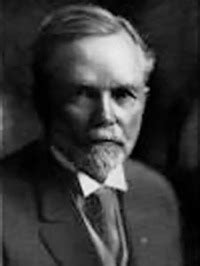A Quote by Alexis de Tocqueville
In democratic countries, however opulent a man is supposed to be, he is almost always discontented with his fortune, because he finds that he is less rich than his father was, and he fears that his sons will be less rich than himself.
Related Quotes
Every man is rich or poor according to the proportion between his desires and his enjoyments; any enlargement of wishes is therefore equally destructive to happiness with the diminution of possession, and he that teaches another to long for what he never shall obtain is no less an enemy to his quiet than if he had robbed him of part of his patrimony
A man who has cured himself of all ridiculous prepossessions, and is fully, sincerely, and steadily convinced, from experience as well as philosophy, that the difference of fortune makes less difference in happiness than is vulgarly imagined; such a one does not measure out degrees of esteem according to the rent-rolls of his acquaintance. ... his internal sentiments are more regulated by the personal characters of men, than by the accidental and capricious favors of fortune.
Strange is the vigour in a brave man's soul. The strength of his spirit and his irresistible power, the greatness of his heart and the height of his condition, his mighty confidence and contempt of danger, his true security and repose in himself, his liberty to dare and do what he pleaseth, his alacrity in the midst of fears, his invincible temper, are advantages which make him master of fortune.
The faithful man perceives nothing less than opportunity in difficulties. Flowing through his spine, faith and courage work together: Such a man does not fear losing his life, thus he will risk losing it at times in order to empower it. By this he actually values his life more than the man who fears losing his life. It is much like leaping from a window in order to avoid a fire yet in that most crucial moment knowing that God will appear to catch you.
We commonly say that the rich man can speak the truth, can afford honesty, can afford independence of opinion and action;--and that is the theory of nobility. But it is the rich man in a true sense, that is to say, not the man of large income and large expenditure, but solely the man whose outlay is less than his income and is steadily kept so.
A Christian should put away all defense and make no attempt to excuse himself either in his own eyes or before the Lord. Whoever defends himself will have himself for his defense, and he will have no other. But let him come defenseless before the Lord and he will have for his defender no less than God Himself.
Let no one imagine that he will lose anything of human dignity by this voluntary sell-out of his all to his God. He does not by this degrade himself as a man; rather he finds his right place of high honor as one made in the image of his Creator. His deep disgrace lay in his moral derangement, his unnatural usurpation of the place of God. His honor will be proved by restoring again that stolen throne. In exalting God over all, he finds his own highest honor upheld.
No man, however enslaved to his appetites, or hurried by his passions, can, while he preserves his intellects unimpaired, please himself with promoting the corruption of others. He whose merit has enlarged his influence would surely wish to exert it for the benefit of mankind. Yet such will be the effect of his reputation, while he suffers himself to indulge in any favourite fault, that they who have no hope to reach his excellence will catch at his failings, and his virtues will be cited to justify the copiers of his vices.
No man could bring himself to reveal his true character, and, above all, his true limitations as a citizen and a Christian, his true meannesses, his true imbecilities, to his friends, or even to his wife. Honest autobiography is therefore a contradiction in terms: the moment a man considers himself, even in petto, he tries to gild and fresco himself. Thus a man's wife, however realistic her view of him, always flatters him in the end, for the worst she sees in him is appreciably better, by the time she sees it, than what is actually there.
There are many who say more than the truth on some occasions, and balance the account with their consciences by saying less than the truth on others. But the fact is that they are in both instances as fraudulant as he would be that exacted more than his due from his debtors, and paid less than their due to his creditors.
All of the incessant debate about development assistance, and whether the rich are doing enough to help the poor, actually concerns less than 1% of rich world income. The effort required of the rich is indeed so slight that to do less is to announce brazenly to a large part of the world: 'You count for nothing.' We should not be surprised, then, if in later years the rich reap the whirlwind of that heartless response.






































